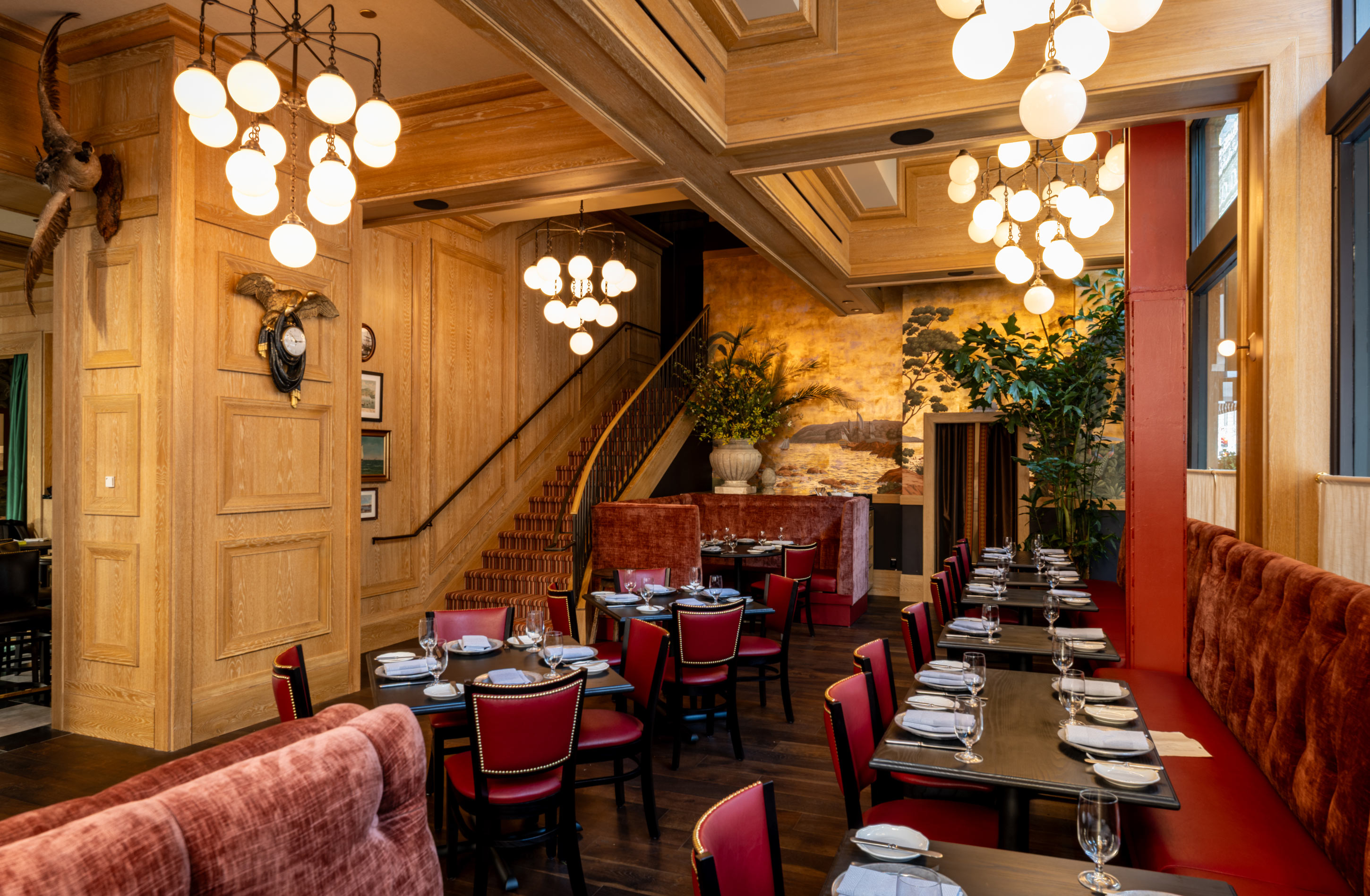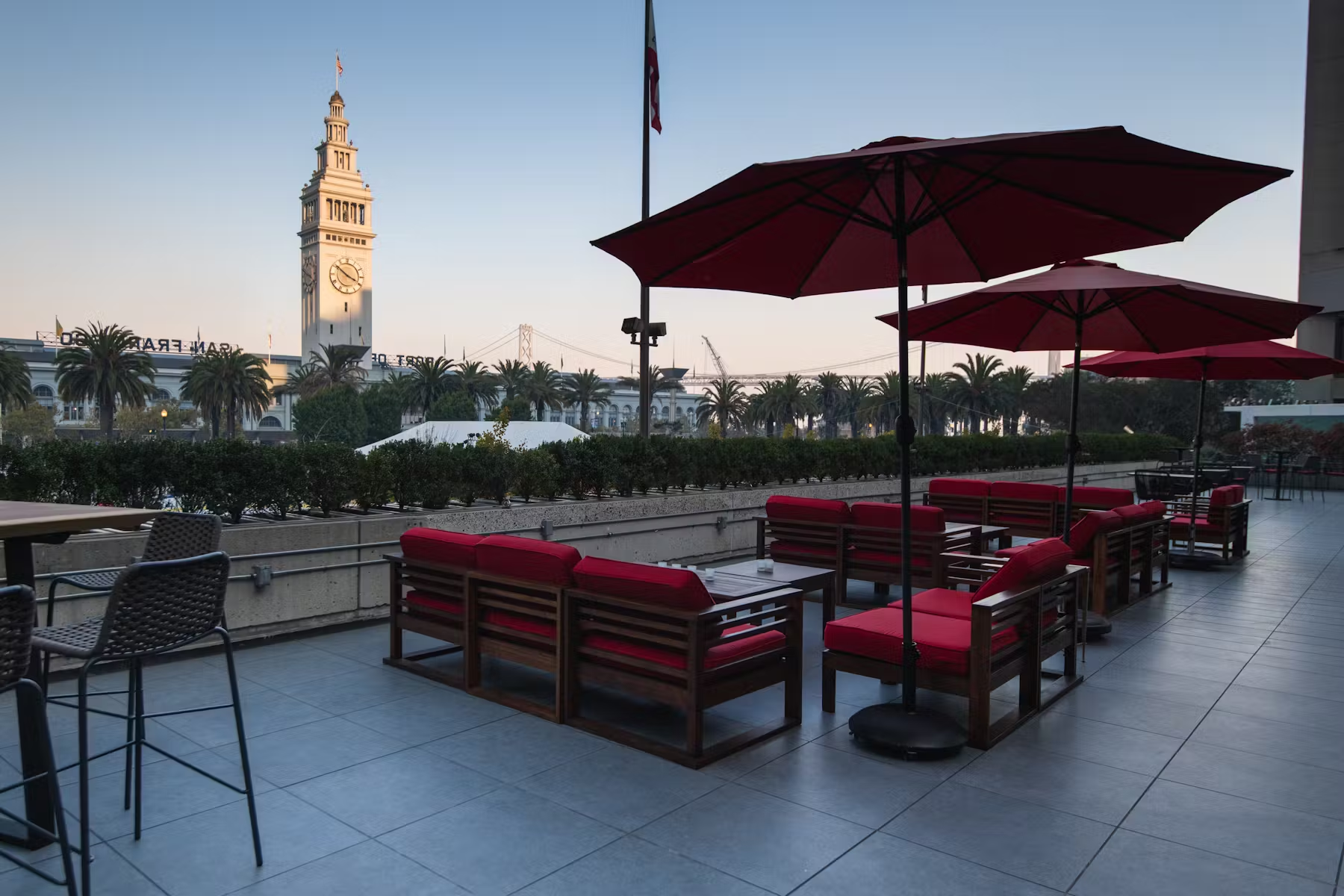
No-shows still cost U.S. restaurants an estimated $17 billion annually, turning what should be profitable evenings into empty tables and lost revenue. (The AI Revolution in Restaurants: Transforming Operations and Customer Experience) For multi-location restaurant groups, this challenge multiplies across every venue, making traditional reminder systems feel like trying to plug a dam with your fingers.
But here's the good news: AI-driven SMS flows tied to reservation systems like OpenTable and Toast are changing the game. In recent Hostie pilots, restaurants saw no-show rates decrease by 28-32% through intelligent, personalized messaging that feels more like a friendly check-in than automated spam. (Hostie AI Features) This isn't just about sending "Don't forget your reservation" texts—it's about creating a communication experience that makes guests excited to show up.
The restaurant industry is experiencing a technological revolution, with AI enhancing customer service and operational efficiency across the board. (The AI Revolution in Restaurants: Transforming Operations and Customer Experience) As Randall Hom, co-founder and CEO of Hostie, puts it: "As a restaurant owner myself, I know how difficult it can be to balance being on the floor during peak service hours while managing inbound calls, texts and emails from potential guests." (Introducing Hostie)
When guests don't show up, the ripple effects extend far beyond one missed cover. Your kitchen has already prepped ingredients, servers have blocked time slots, and you've potentially turned away walk-ins who could have filled that seat. (The Role of AI in Restaurants - Trends for 2024) For multi-location operators, these losses compound across every venue, creating a significant drag on profitability.
The numbers tell a stark story:
Here's what makes this particularly frustrating: 63% of Americans say calling is their preferred way to contact a restaurant, and more than two-thirds (69%) would give up on going to a restaurant if no one answers the phone. (Missed Connection: Over Two-Thirds of Americans Would Ditch Restaurants That Don't Answer the Phone) Yet during busy service periods, answering every call becomes nearly impossible, creating a communication breakdown that contributes to confusion and no-shows.
The beauty of modern AI SMS systems lies in their ability to seamlessly integrate with your existing reservation and POS infrastructure. Whether you're using OpenTable, Resy, Toast, or other platforms, AI-powered communication tools can pull reservation data in real-time and trigger personalized message sequences. (Navigating AI in the Restaurant Industry)
This integration means:
What sets AI-driven SMS apart from basic automated reminders is the intelligence layer. AI can analyze guest behavior patterns, reservation history, and even external factors like weather or local events to optimize message timing and content. (The Role of AI in Restaurants - Trends for 2024) This means your 7 PM Saturday reservation gets a different communication strategy than your Tuesday lunch booking.
AI applications in restaurants are expanding rapidly, with tools now capable of analyzing customer data to offer customized recommendations and tailor marketing messages based on past preferences. (Navigating AI in the Restaurant Industry)
In controlled pilots across multiple restaurant locations, Hostie's AI-driven SMS reminder system delivered measurable results that directly impacted bottom-line performance. The 28-32% reduction in no-shows translated to:
The success wasn't just about sending more messages—it was about sending smarter ones. The AI system analyzed factors like:
This data-driven approach meant that frequent diners received different messaging than first-time guests, and weekend reservations got more intensive follow-up than weekday bookings. (ChatGPT for restaurants - 42 Ways to use AI)
Burma Food Group, which has been bringing delicious, high-quality Burmese food to San Francisco and beyond for over twenty years across seven Bay Area locations, started with Hostie in 2025. (How Burma Food Group is Implementing a Virtual Concierge to Boost Over-the-Phone Covers by 141%) Their results speak volumes:
As one manager noted: "It's definitely improved my day-to-day. I love not having to hear the phone ringing when we're in the middle of dinner service when I have a line of guests in front of me." (How Burma Food Group is Implementing a Virtual Concierge to Boost Over-the-Phone Covers by 141%)
Timing is everything in SMS reminders. Send too early, and guests forget. Send too late, and they've already made other plans. The optimal timing strategy follows a multi-touch approach:
| Timing | Message Type | Purpose | Success Rate |
|---|---|---|---|
| 24 hours before | Confirmation + excitement | Build anticipation | 85% open rate |
| 4 hours before | Practical reminder | Final confirmation | 92% open rate |
| 1 hour before | Last-chance check | Catch last-minute changes | 78% open rate |
AI systems can adjust these timings based on guest behavior patterns. For example:
Smart SMS systems can integrate weather data and local event information to adjust messaging. (The Impact of Artificial Intelligence on the Restaurant Industry) A rainy day might trigger an earlier reminder with parking information, while a local festival might include traffic updates and alternative transportation suggestions.
True personalization goes far deeper than inserting a guest's name. AI-driven systems can customize messages based on:
Guest History Variables:
Reservation Context Variables:
AI can generate contextually relevant content for each message. (ChatGPT for restaurants - 42 Ways to use AI) For example:
Advanced systems can trigger different message sequences based on guest behavior:
Standard Confirmation:
Hi [First Name]! We're excited to see you tomorrow at [Restaurant Name] at [Time]. Your table for [Party Size] is confirmed. Can't wait to serve you! Reply STOP to opt out.
Celebration Booking:
Hi [First Name]! Tomorrow's [Occasion] celebration at [Restaurant Name] is going to be special. Your [Time] reservation for [Party Size] is confirmed. We have something sweet planned! 🎉
Business Dinner:
Good [Morning/Afternoon] [First Name]. Your business dinner reservation at [Restaurant Name] tomorrow at [Time] is confirmed. We've reserved a quiet table perfect for conversation. See you then!
Standard Reminder:
Hi [First Name]! Just a friendly reminder about your [Time] reservation at [Restaurant Name] today. We're located at [Address]. Looking forward to serving you!
Weather-Adjusted:
Hi [First Name]! Your [Time] reservation is confirmed. With the rain today, we recommend our covered parking area. Can't wait to warm you up with great food!
Traffic-Aware:
Hi [First Name]! Your [Time] reservation approaches. Traffic is heavy on [Street Name] - consider arriving 15 minutes early. We'll have your table ready!
Gentle Confirmation:
Hi [First Name]! See you in about an hour at [Restaurant Name]. If plans change, just let us know. Otherwise, we're excited to serve you!
Urgent Weather Update:
[First Name], we know weather is challenging today. Your [Time] reservation stands, but if you need to reschedule, just reply. Stay safe!
Successful SMS reminder programs require careful monitoring of key performance indicators. Here are the metrics that matter most:
Primary Success Metrics:
Operational Efficiency Metrics:
Guest Experience Metrics:
Effective KPI dashboards for restaurant operators should be:
| Metric | This Week | Last Week | Change | Target |
|---|---|---|---|---|
| No-Show Rate | 12.3% | 18.7% | -34.2% | <15% |
| SMS Response Rate | 67% | 64% | +4.7% | >60% |
| Revenue Recovery | $3,240 | $2,180 | +48.6% | $2,500 |
| Guest Satisfaction | 4.6/5 | 4.4/5 | +4.5% | >4.5 |
Before launching any SMS reminder program, restaurants must navigate the legal landscape carefully. The Telephone Consumer Protection Act (TCPA) and other regulations require:
Explicit Consent:
Message Content Guidelines:
Beyond legal requirements, technical best practices ensure deliverability and effectiveness:
Carrier Compliance:
Data Protection:
Successful restaurant SMS programs follow these proven practices:
Frequency Management:
Content Quality:
Multi-location restaurant groups face a unique challenge: maintaining brand consistency while allowing for local customization. The most successful approaches balance central control with local flexibility.
Centralized Benefits:
Local Customization Needs:
Modern restaurant groups typically operate with multiple technology systems that need to work together seamlessly. (The Role of AI in Restaurants - Trends for 2024) Key integration points include:
Reservation Systems:
POS Integration:
Customer Data Platforms:
As restaurant groups grow, SMS reminder systems must scale efficiently:
Volume Management:
Cost Optimization:
The next generation of AI SMS systems goes beyond reactive reminders to predictive guest management. (The Impact of Artificial Intelligence on the Restaurant Industry) These systems can:
No-Show Risk Scoring:
Optimal Timing Prediction:
Advanced AI systems can understand and respond to guest replies intelligently. (ChatGPT for restaurants - 42 Ways to use AI) This enables:
Intelligent Response Handling:
Dynamic Content Generation:
AI systems continuously improve through machine learning, analyzing every interaction to optimize future performance:
Message Effectiveness Learning:
Operational Intelligence:
The restaurant industry is experiencing unprecedented AI adoption across all operational areas. In June 2025, Dine Brands, the parent company of Applebee's and IHOP, announced plans to implement artificial intelligence in their restaurants, testing Voice AI Agents to handle customer orders over the phone. (Smart Service Revolution: Applebee's and IHOP Turn to AI Employees for Restaurant Efficiency) This represents a significant step in the industry's embrace of AI technology to manage high call volumes and labor shortages.
Voice AI platforms are becoming increasingly sophisticated, with companies like ConverseNow handling over 2,000,000 conversations per month and repurposing over 83,000 labor hours in the same period. (ConverseNow) These platforms can be configured to match a brand's unique needs and operational requirements, including tone, persona, upsell logic, and localization.
Consumer attitudes toward AI in restaurants are overwhelmingly positive. Research shows that 89% of Americans would be open to using an AI agent for tasks related to interacting with a restaurant. (Missed Connection: Over Two-Thirds of Americans Would Ditch Restaurants That Don't Answer the Phone) This acceptance creates a favorable environment for AI-driven communication tools, including SMS reminder systems.
The key to success lies in making AI interactions feel natural and helpful rather than robotic or intrusive. As Hostie's approach demonstrates, the goal is to enhance hospitality, not replace it. (Introducing Hostie)
SMS reminder systems are evolving rapidly, incorporating new capabilities:
Rich Communication Services (RCS):
Omnichannel Integration:
Advanced Personalization:
Week 1-2: System Selection and Setup
Week 3-4: Compliance and Legal Review
Week 5-6: Pilot Program Launch
Week 7-8: Message Optimization
Week 9-10: Multi-Location Rollout
Week 11-12: Advanced Features
| Timeframe | Expected Improvements | Key Metrics |
|---|---|---|
| 30 days | 10-15% no-show reduction | Basic response rates |
| 60 days | 20-25% no-show reduction | Guest satisfaction scores |
| 90 days | 25-30% no-show reduction | Full |
AI SMS reminders leverage predictive analytics and personalized messaging to reach customers at optimal times with tailored content. By analyzing customer behavior patterns, dining history, and preferences, AI can craft compelling reminder messages that significantly increase show-up rates. Studies show that personalized, timely SMS reminders can reduce no-shows by up to 30% compared to generic automated messages.
Effective AI SMS systems include predictive timing algorithms that send reminders at optimal moments, personalization engines that customize messages based on customer data, and integration capabilities with existing POS and reservation systems. They also feature compliance management for SMS regulations, multi-language support for diverse customer bases, and analytics dashboards to track performance and ROI across multiple locations.
Multi-location restaurants can implement centralized AI SMS platforms that connect to each location's reservation system while maintaining location-specific customization. The integration typically involves API connections to existing POS systems, unified customer databases, and location-based message templates. This allows for consistent brand messaging while accommodating local preferences, time zones, and operational differences across locations.
Restaurants must comply with TCPA regulations requiring explicit customer consent before sending SMS messages, include clear opt-out instructions in every message, and maintain detailed records of consent. Additionally, they must respect quiet hours (typically 8 AM to 9 PM local time), provide easy unsubscribe options, and ensure data privacy protection. Non-compliance can result in fines up to $1,500 per violation.
According to research from Hostie.ai, missed phone connections significantly impact customer loyalty, with over two-thirds of Americans stating they would avoid restaurants that consistently don't answer calls. This highlights the critical importance of responsive customer service and the role that AI-powered solutions can play in ensuring every customer interaction is captured. Restaurants that fail to answer calls not only lose immediate reservations but also damage long-term customer relationships.
Restaurants typically see a positive ROI within 3-6 months of implementing AI SMS reminder systems. With no-shows costing the U.S. restaurant industry an estimated $17 billion annually, even a 20-30% reduction in no-shows can generate significant revenue recovery. Additional benefits include reduced staff time spent on manual reminder calls, improved table turnover rates, and enhanced customer satisfaction through personalized communication.
RELATED


